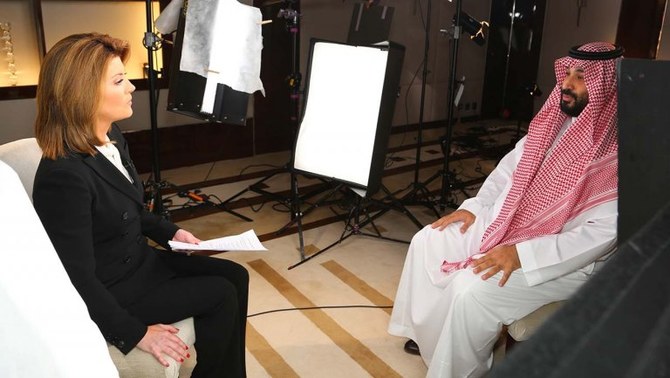Saudi Arabia will act rationally, unlike Iran

Last month’s terrorist attack against Saudi Arabia, which targeted two Aramco oil facilities in Abqaiq and Khurais in the east of the country, has escalated tensions in the Arabian Gulf, which had already been experiencing increased volatility due to Iran’s belligerence against the region’s countries, especially Saudi Arabia.
The terrorist attack was claimed by the Houthis in Yemen. The investigation carried out by the Saudi-led Arab coalition and Saudi government, however, concluded that the drones and missiles had not been launched from Yemen. The initial examination of the weapons used in the attacks confirmed they were Iranian-manufactured.
The global reaction was swift and extensive, with governments worldwide denouncing the attacks and expressing solidarity with Saudi Arabia. Many analysts suggested that it may be necessary for the international community to take deterrent measures against Tehran. However, countries such as China and Russia, clouded by their own economic interests, have refused to blame Tehran until presented with what they class as hard facts.
It is important to avoid any hasty, headstrong response, however tempting it may be. In such a sensitive situation, it is imperative that intensive analysis and strategic thinking take place, transcending the terrorist attack itself and instead examining the problematic political and ideological system controlling the decision-making process in Tehran. The latest terrorist operation, despite being dangerous, is nothing but an advanced model of a policy pursued by the Iranian regime for decades.
It is clear that the international community must shoulder its responsibility if it seeks stability and wants to avoid spiraling tensions and more wars in the region. If the international community is not spurred into action by the recent turbulent developments, then those countries that are the primary consumers of energy from the Middle East must take on some responsibility to defuse tensions in the region in order to avert global economic losses, which could happen if petrol prices keep fluctuating.
The Kingdom will not remain a bystander while its sovereignty and interests are endangered by Iran.
Dr. Mohammed Al-Sulami
This is expected to happen as instability continues in the region. The volatility in the energy market is becoming ever more worrying as the world heads for a potential massive economic recession. How much deeper would the recession be if a significant rise in energy prices was added to the calculated economic losses? This was alluded to by Crown Prince Mohammed bin Salman following the recent terrorist attack. During an interview on CBS’ “60 Minutes,” he agreed that the attacks were “an act of war by Iran.” He added: “If the world does not take strong and firm action to deter Iran, we will see further escalations that will threaten world interests.”
If the international community will not act to protect its own interests and those of Saudi Arabia, Riyadh will have to explore the various options it has. But the option its leadership will settle on remains unknown to this author. First, Saudi Arabia may submit proof to the UN Security Council and seek a UN resolution condemning Iran and holding it accountable for the terrorist attacks. Second, if it is proved that the drones and missiles originated from Iranian soil, Saudi Arabia would have the absolute right and full legitimacy under international law to take steps to defend itself by targeting strategic Iranian positions. Third, should the world choose to ignore the various crises caused by the militias established by Iran in the region, the Kingdom may be forced to adopt a more aggressive policy toward them. It is clear Saudi Arabia has a number of options and it will carefully decide which one to pursue, but what is for sure is that the Kingdom will not remain a bystander while its sovereignty and interests are endangered by Iran.
While detailing the aforementioned options available to Riyadh, it is important to note that the Saudi decision-making process remains measured and well thought out, in contrast to the rage-driven responses of the perpetrators of this act of war. This is in addition to the fact that, unlike Iran, Saudi Arabia believes in respecting international treaties and charters as well as in the necessity of avoiding destructive wars and conflicts in the region. This Saudi mindset is something that will ensure that the Kingdom will act rationally, taking into consideration its interests and those of the region and the world; in direct contrast to Iran, which maximizes its own interests at the expense of others.
- Dr. Mohammed Al-Sulami is Head of the International Institute for Iranian Studies (Rasanah). Twitter: @mohalsulami










































